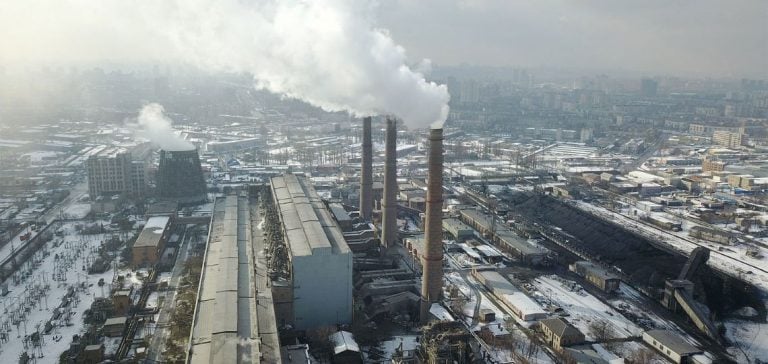Ukraine is facing an unprecedented energy crisis.
Since the start of the Russian invasion in February 2022, its energy infrastructure has suffered considerable damage, and the situation is worsening as winter approaches.
Bombing of power plants and distribution networks, particularly since the spring of 2024, has undermined the country’s ability to supply electricity.
Today, more than two-thirds of pre-war generating capacity is out of service, either destroyed or under occupation.
The International Energy Agency (IEA) report published in September 2024 highlights the growing risks for the Ukrainian population.
Unscheduled power cuts and supply interruptions have become the norm, affecting not only homes, but also critical infrastructure such as hospitals and schools.
As the colder months approach, these disruptions are likely to worsen, with a growing gap between electricity demand and supply capacity.
Urgent measures to avoid the worst
Faced with this critical situation, the IEA proposes ten priority measures to strengthen the resilience of the Ukrainian energy system.
Firstly, it is imperative to secure strategic infrastructures against attack, both physically and digitally.
Ukraine’s international partners must also speed up the delivery of equipment and spare parts to rapidly repair damaged facilities.
One of the central recommendations is to decentralize the power grid.
This approach aims to reduce Ukraine’s dependence on a centralized grid, vulnerable to attack, by favoring local and diversified energy sources.
At the same time, it is essential to invest in energy efficiency to limit demand for electricity, and to increase gas and electricity import capacity from the European Union.
These measures aim to stabilize supply while preparing Ukraine for greater energy integration with Europe in the long term.
The key role of the European Union
Since the beginning of the war, the European Union has played a crucial role in supporting Ukraine’s energy needs.
The EU4Energy program, developed in cooperation with the IEA, has strengthened collaboration between the two parties and accelerated efforts to stabilize the Ukrainian grid.
Modernization of the Ukrainian energy system is one of Ukraine’s priorities, as it seeks to align itself with European standards in terms of both safety and energy efficiency.
The IEA also stresses the importance of a coordinated approach with Moldova, which relies heavily on a power plant in the Russian-backed breakaway region of Transnistria.
From January 2025, the gas transit situation via Ukraine to supply this power plant could change, creating new challenges for both countries.
Enhanced cooperation is therefore necessary to guarantee energy security for both nations.
Preparing for the future despite current challenges
Although immediate actions are focused on responding to the ongoing attacks and preparing for winter, the IEA stresses the importance of designing these measures in such a way as to prepare Ukraine for a more resilient and modern energy future.
Energy decentralization, improved energy efficiency and integration with European networks are among the long-term objectives that could help Ukraine strengthen its energy sovereignty.
Despite growing pressure, the Ukrainian authorities remain determined to strengthen the country’s energy security and to work closely with their international partners to overcome these challenges.
The speed of implementation of these measures will be crucial to avoid major disruptions this winter, and to ensure a reliable supply of electricity and gas to the Ukrainian population.






















